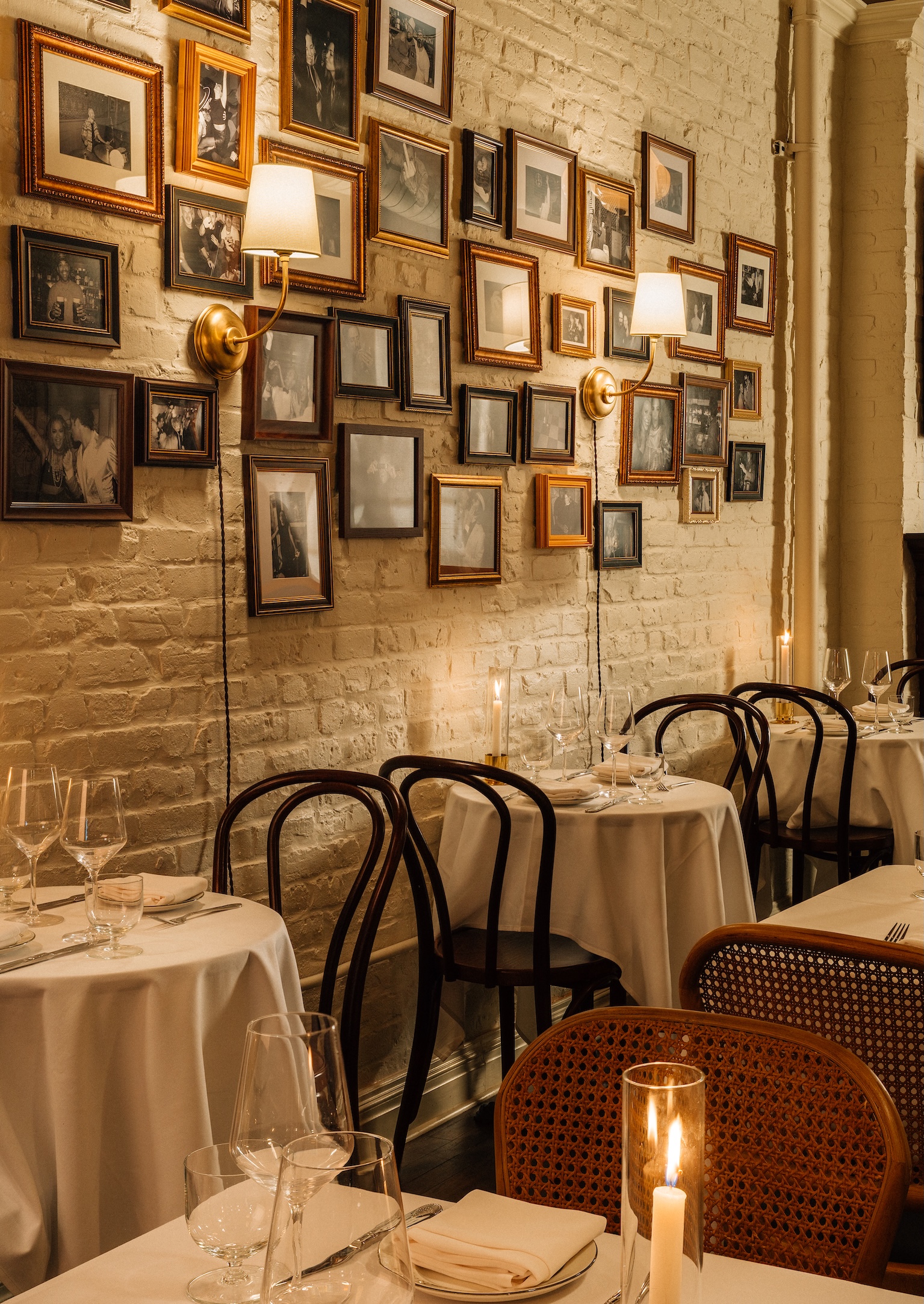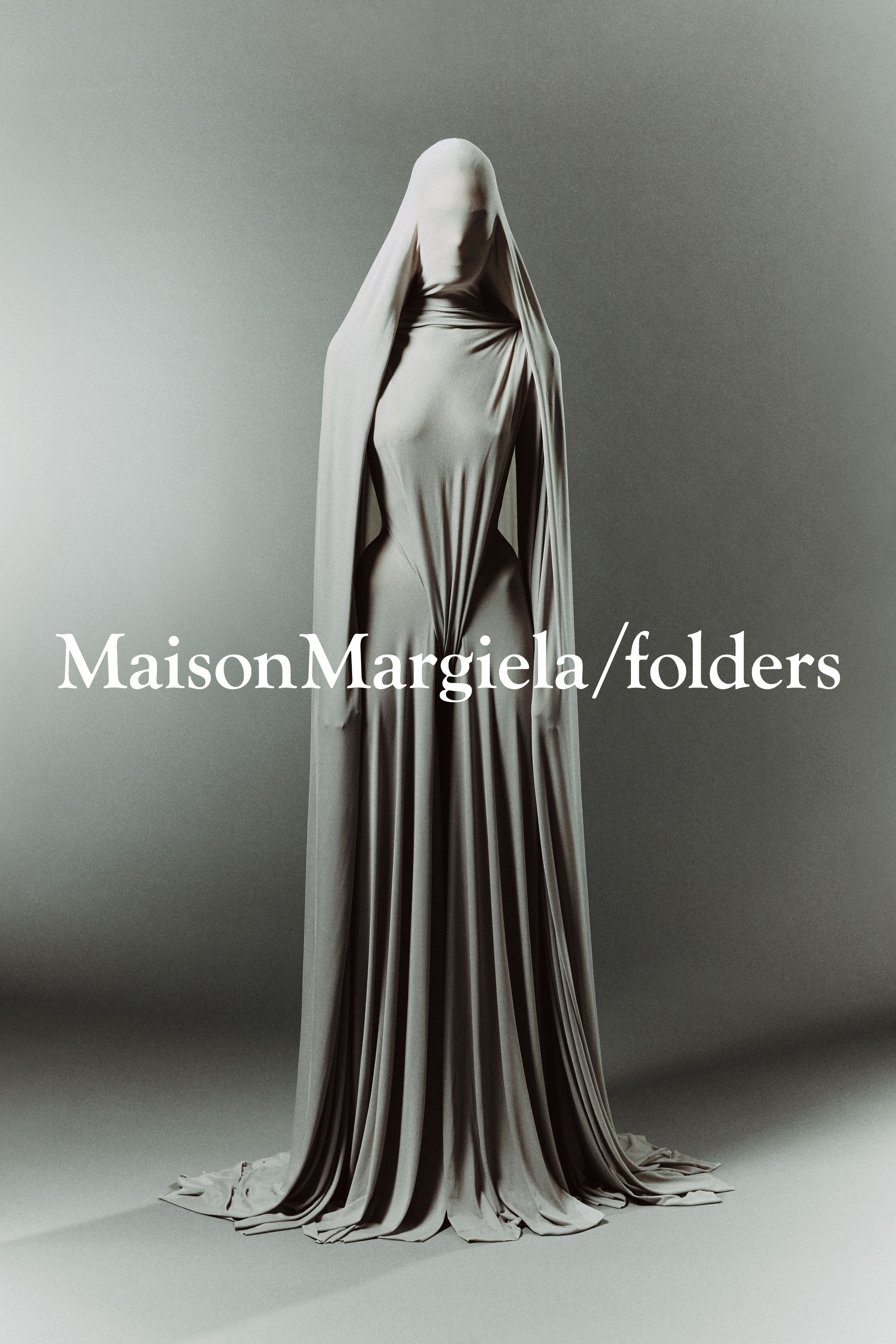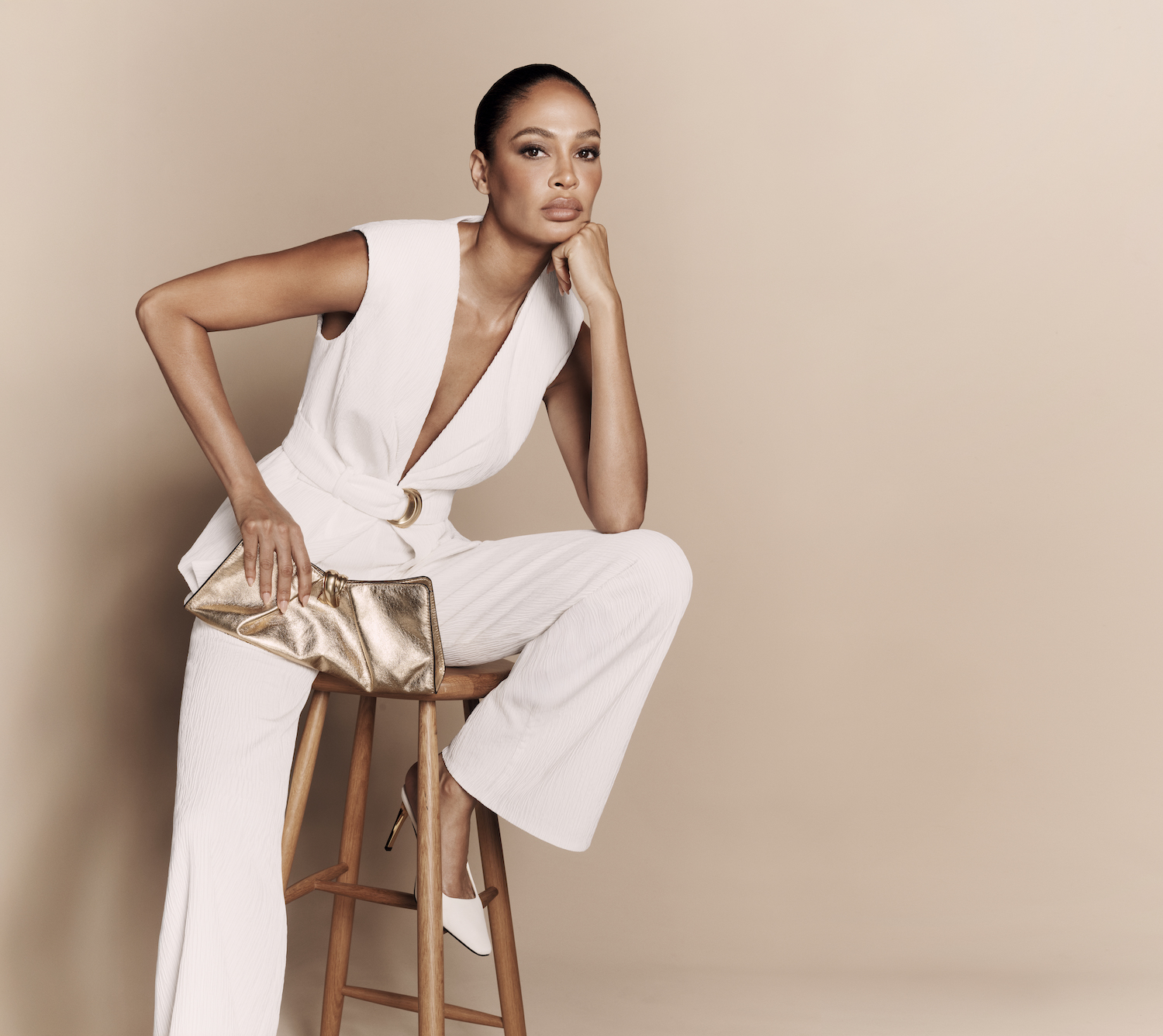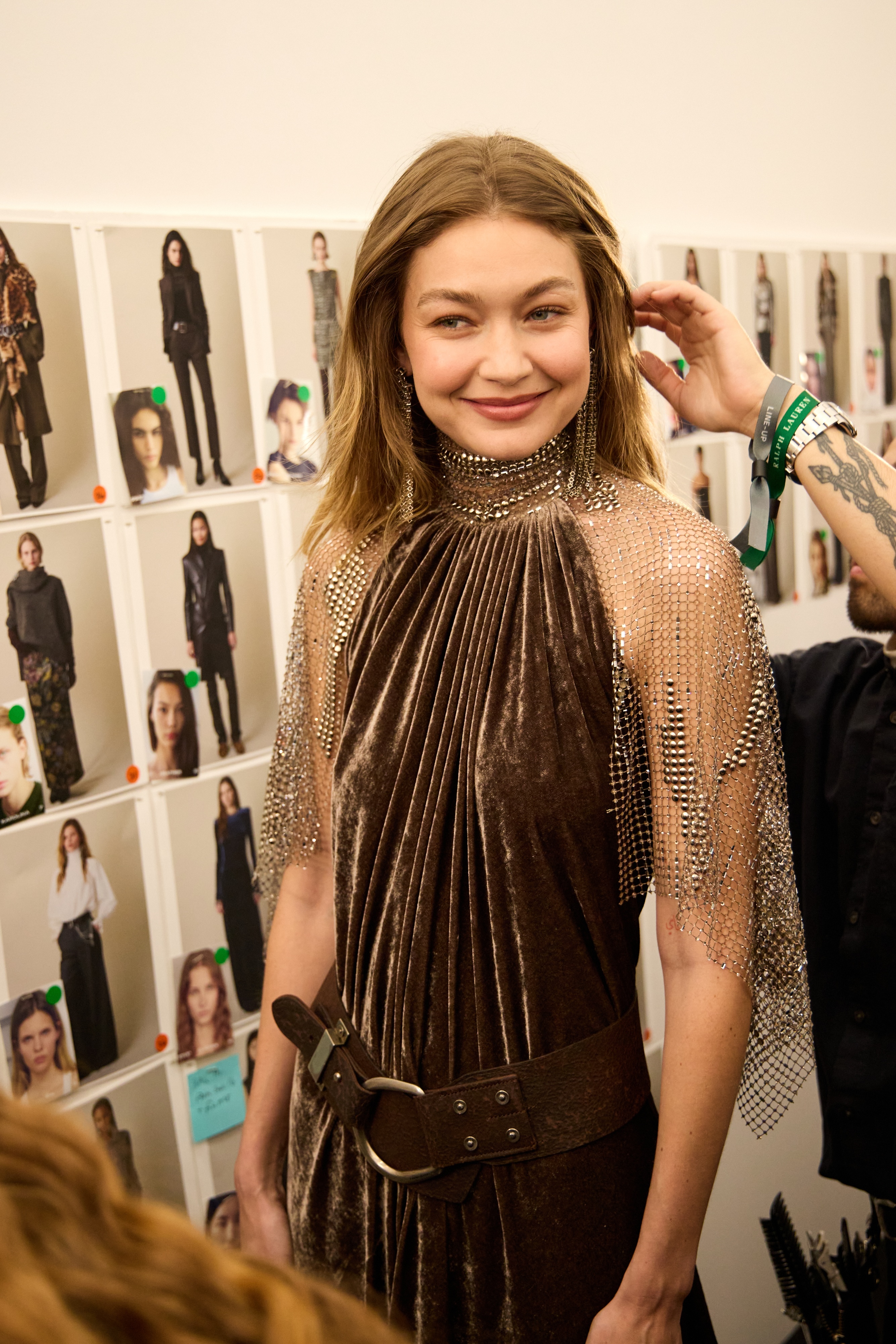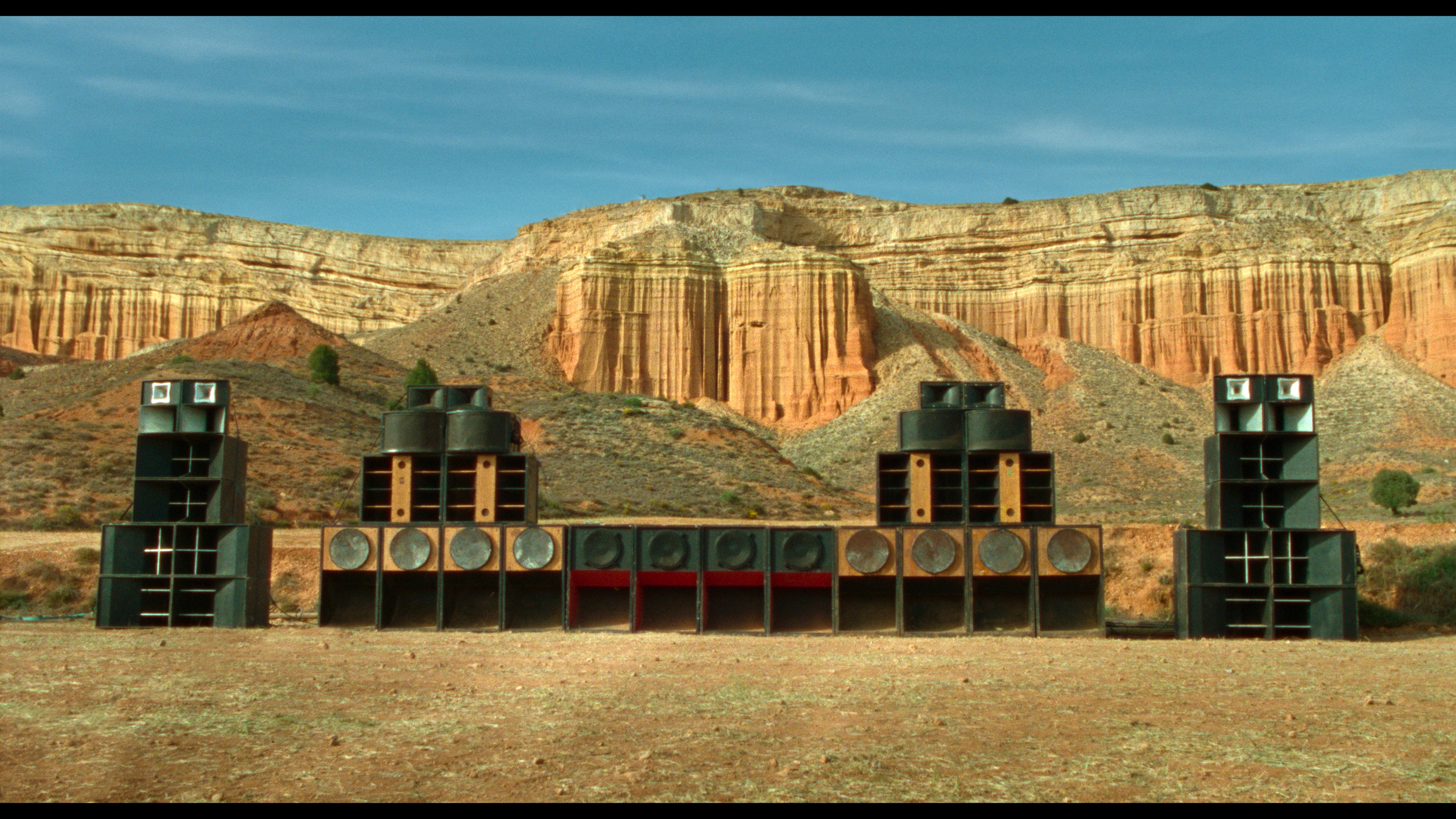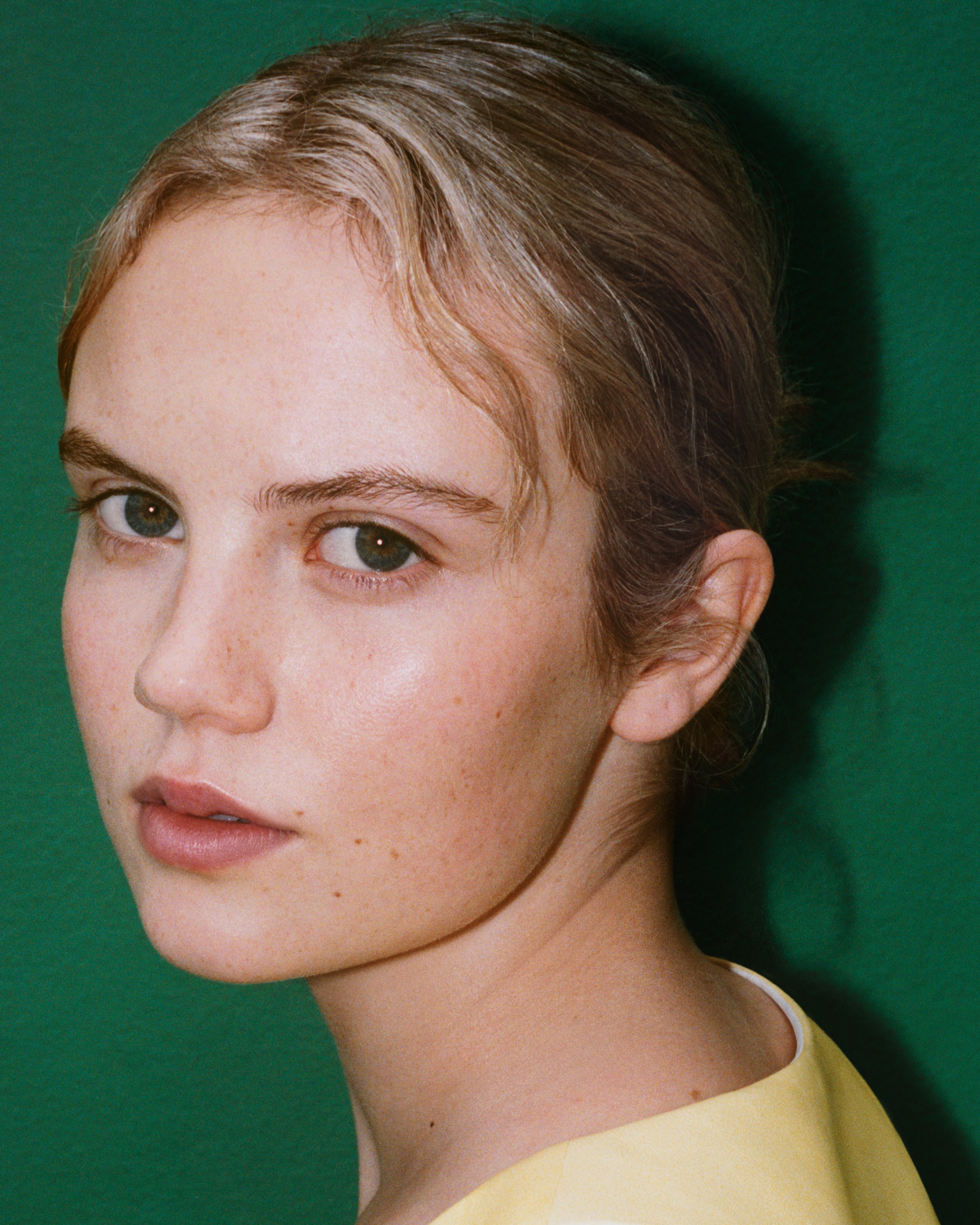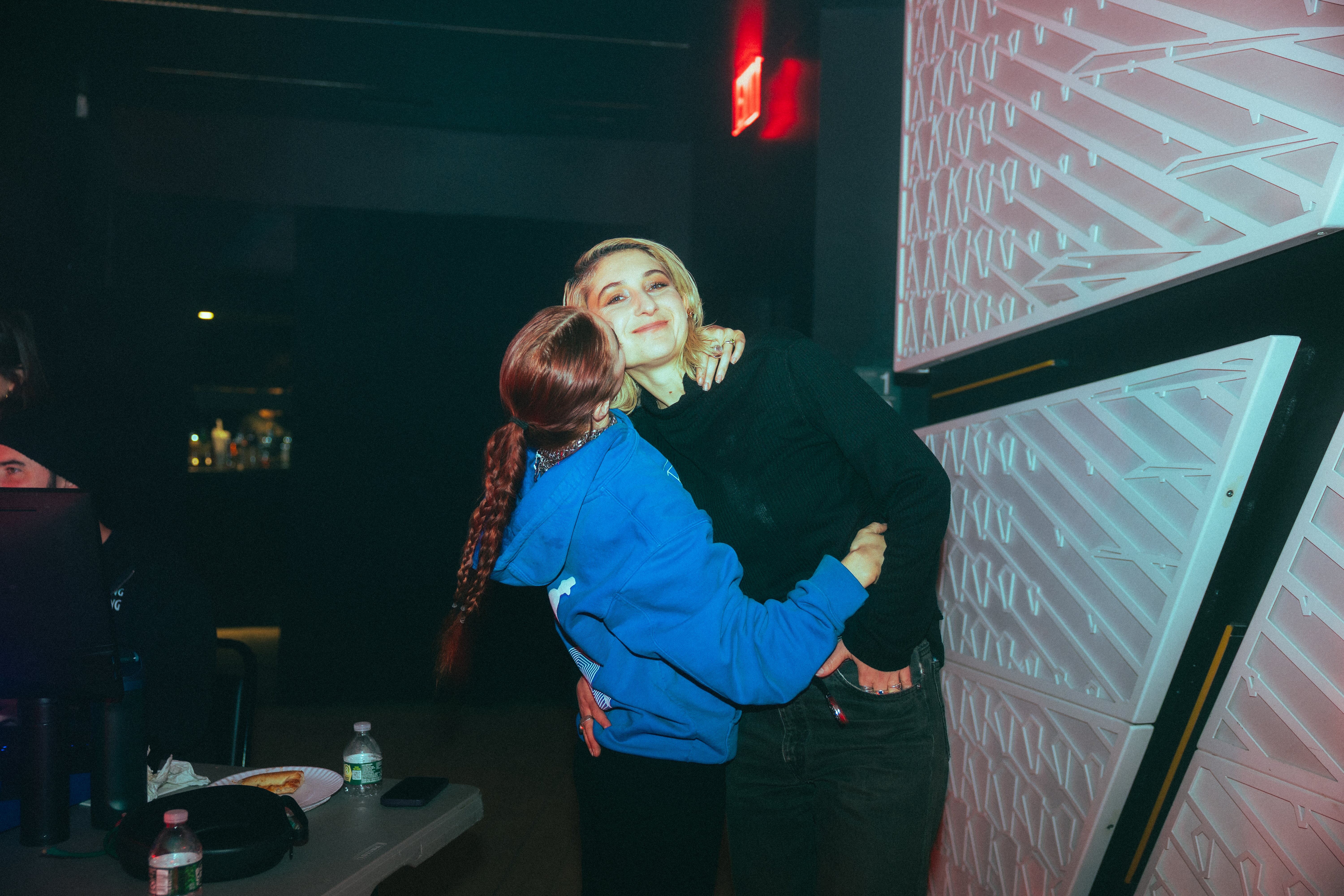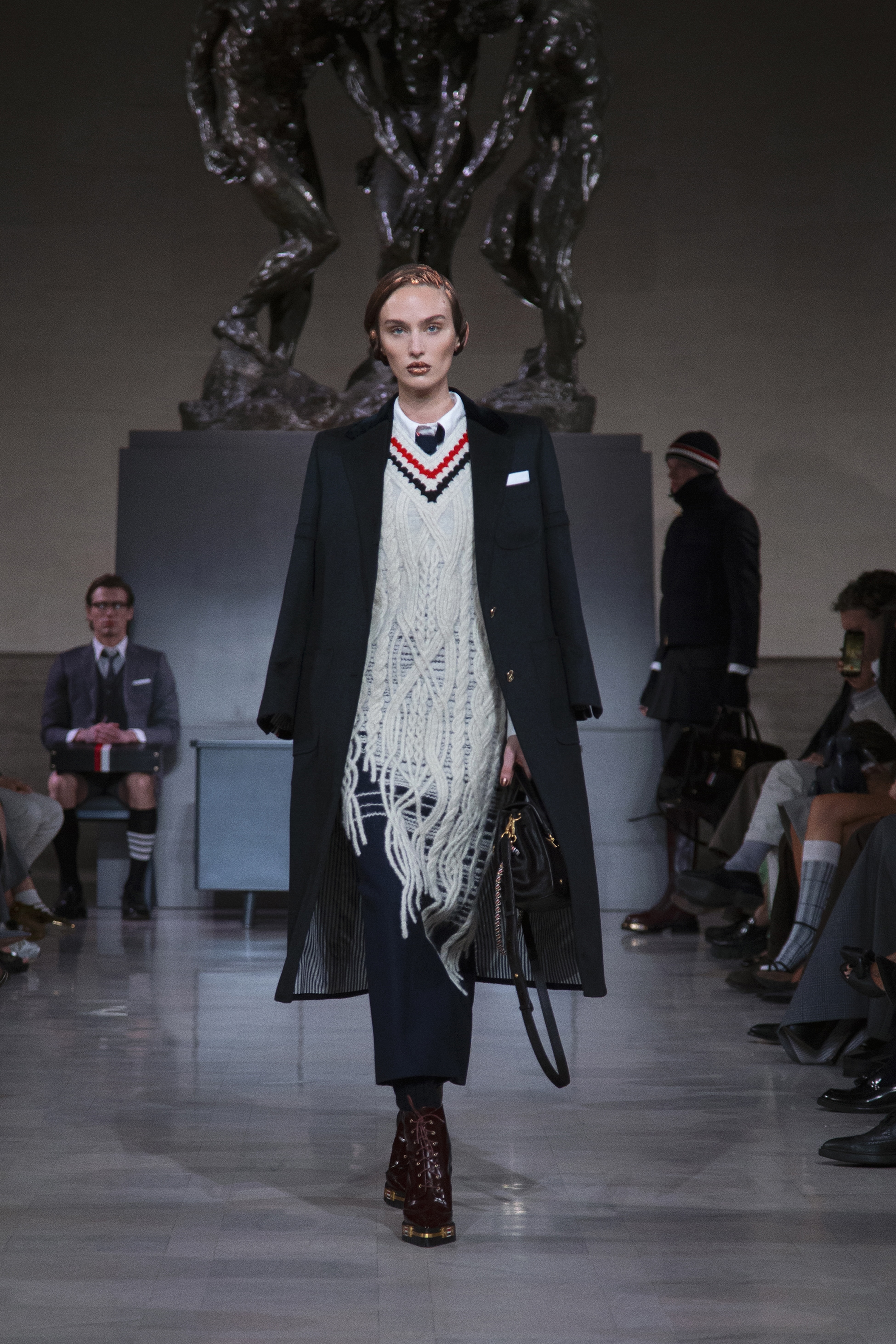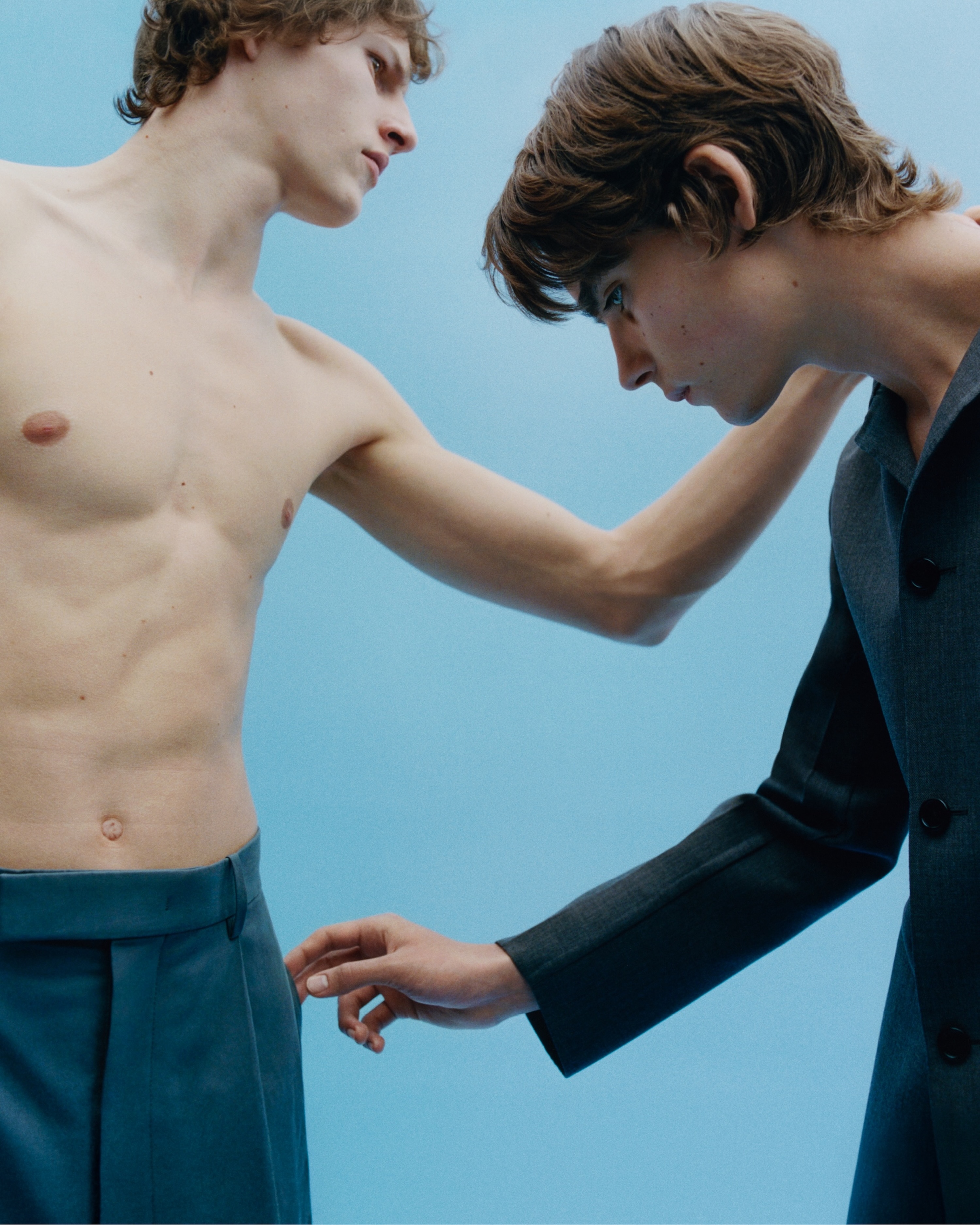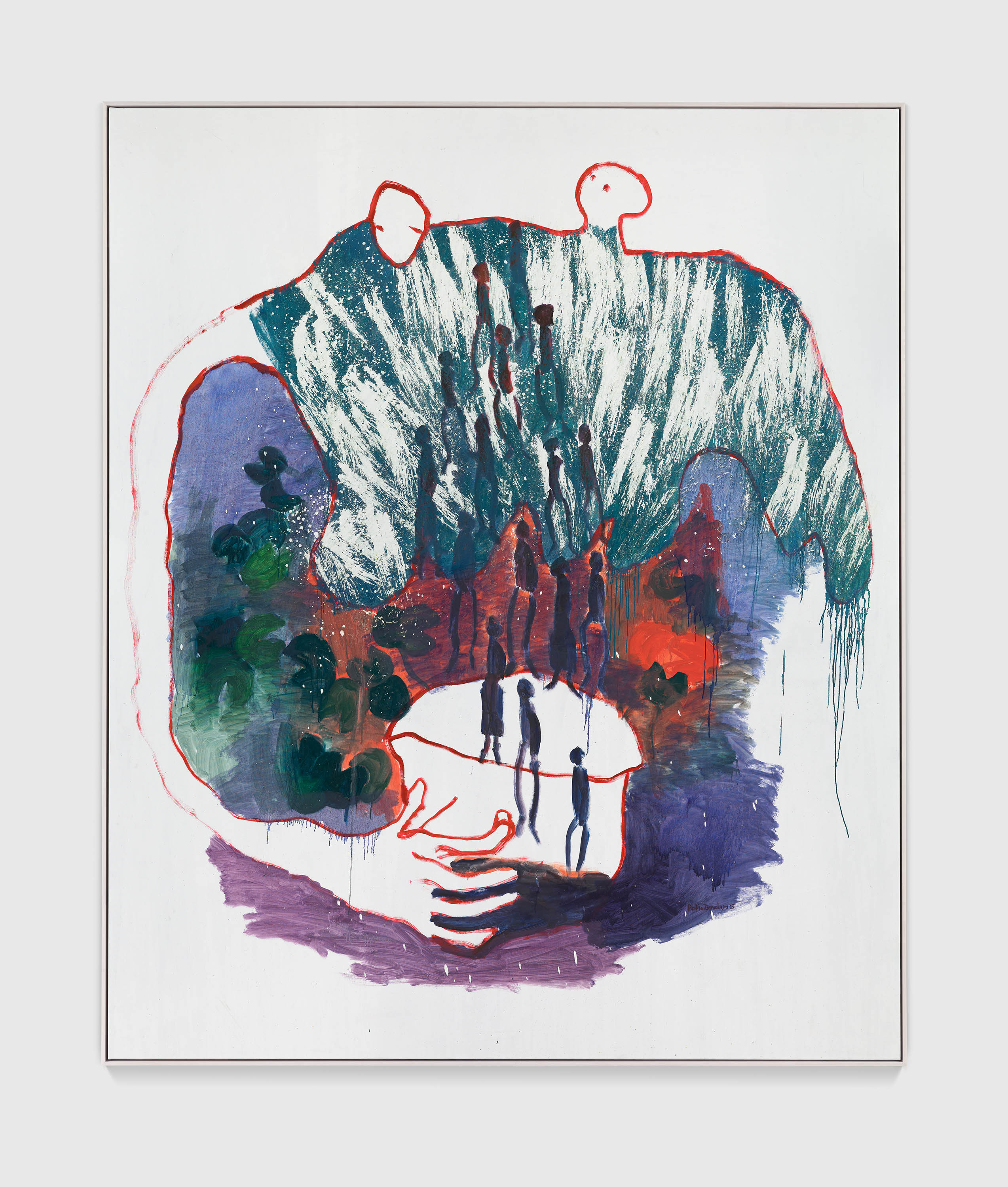The turquoise shorts are high-waisted, the pastel dresses have frilly collars and the phones still take quarters in the highly stylized new short film, “How Does It Start,” by director [Amber Sealey](http://www.ambersealey.com/).
Set in 1983, the film explores uncharted cinematic territory: the frank sexual desire—and swirling romantic confusion—of a 12-year-old girl. Where pre-teen boys have long been filmed in sexual coming-of-age stories, pre-teen girls have largely been invisible, depicted only as objects of perverse adult desire, or chaste creatures with no sexuality at all.
Sealey, who has risen to prominence with female-centric films such as, “No Light No Land Anywhere" and "How to Cheat," set out to change the way pop culture views the budding sexuality of girls on the perilous edge of adolescence, with the hope that such exposure will help illuminate the truth about adult female desire, which has suffered immeasurably under the male gaze since the dawn of cinema.
The result is a touching, sometimes disturbing film, where adult arguments rage in the background as furiously as the hormones of the film’s 12-year-old protagonist rage in the foreground. A place where an airplane sliced in half sits on a riser in the windswept desert, and young girls experiment with each other’s bodies under pink quilts and the cover of night.
We caught up with Sealey for a quick Q&A before she heads to the 2019 Sundance Film Festival where “How Does It Start” will World Premiere.


**You are a child of the 1980s. How did you draw on your past to create the style for the film?**
The whole film is inspired loosely by my childhood. I found my diaries from when I was 10-12 and reading them reminded me of the feeling of being that age, all the questions and not many answers, how aware you are of everything, but not fully understanding it. Having such big feelings, with no real outlets for them. The diary entries that the lead character reads in the voice over are verbatim my diaries from when I was that age. So part of this script I wrote when I was eleven years old. I was also drawing on what it felt like to have so many things going on around you that you didn’t understand, and had no control over — like your parents fighting, witnessing weird things that confuse but fascinate you. I drew a lot on my past, but I also think so many things that Rain (the lead character) is going through are universal.
**Payphones hold particular emotional resonance for those who remember using them. Was there special significance to the scene where your protagonist, Rain, uses a payphone to call her mother?**
What was funny was that the actress, Lola Wayne Villa, who is amazing, had no idea how to use the phone for the scene. I had to actually remember myself... first pick it up, then listen for dial tone, then put quarter in, then listen again, then dial, then listen again... it took a few of us old fogies to remember the exact sequence of events to make sure it looked real when filming it! In terms of significance, the payphone was a symbol of how much has changed with regards to information for kids then vs. now. Access to information (and not all of it accurate, or good for them to be accessing) is so easy now — every child has a cell phone, or their friend has one. But back then if we had questions we had to get a ride to the library, get a library card, check out a book, understand the book… it was a much longer process to get information. Same thing with getting in touch with someone, you couldn’t just pick up your phone and text them. You had to hunt down a phone, find a quarter, hope they were home, often they weren’t. It was a much more involved and laborious process to reach someone, and in a sense I miss that effort. I miss the process. A phone ringing and no one answering… so many possibilities. Life moves so fast now, and that’s great in many ways, but what I was trying to hint at was the processes by which we communicated or relayed information were not just slow, they were also inherently different just by the nature of the technique with which we did them. I’m a process over product person anyway, in life. So these communication processes that are dead now hold sweet significance for me.
**The kids in this film seem to be largely on their own. How do you think the hands-off approach to parenting many adults took in the ‘80s, affected their children’s sexual awakenings?**
I think about that a lot. I’m a parent now, and I think I parent very different from how my mom and dad did. Largely that is due to what is en vogue with regards to parenting styles. I’m benefiting from living in a metropolis where there are lots of parents who have read research and studied, and there are classes, and organizations to help educate parents, there is just a whole heap of research now about brain science and child development that didn’t exist in the early 80s… I think that the general consensus, where I grew up, was that “kids don’t really understand everything they are seeing and hearing.” Therefor, we kids saw and heard a lot more than we maybe should have. My generation of parents don’t typically think that way anymore. The parents that I know now all view their children as sentient human beings from day one. I think my parents and their generation either thought kids would forget everything, or that they didn’t understand it, or that things didn’t matter that much since it wouldn’t be a lasting effect. Whereas, the parents I know now are constantly worried that any little parenting error they make will scar their kids for life. The truth probably lies somewhere in-between. And for sure helicopter parenting was not the style in the 80s, kids were much more free to roam the neighborhood alone, to spend hours together with no adult in sight. And for sure I think that hands-off approach made for a very different kind of sexual awakening that is commonplace now.
**What were you looking for in the young actresses who play your two female leads?**
It’s hard to describe what you are looking for in any actor because it’s always character dependent and some of it is intangible. Obviously always talent, and some general sense of the visual person you had in your mind. With Rain and Echo, I needed kids who had depth and didn’t feel like they were too entrenched in 2018. Both Lola Wayne Villa and Elixa Dean, who play the sisters, were amazing the first time they walked in the room. There was just something about them: I was interested in them, I liked spending time with them, they asked smart questions, they weren’t trying to overly impress me. They were wholly themselves. When Lola came in and did her first reading I got chills, she left the room and I turned to my casting director and said, “Did you just feel that?!” It felt magical, and sometimes that’s how it is with actors. And with kids I’m always looking for ones who are not indicating too much, not being overly performative. I want a child who is a child, and we feel so grateful that we found such amazing kids to work with. All of them were consummate professionals without being jaded or cheesy-Hollywood in any way.
**What were the biggest challenges you faced as a director when it came to guiding your actresses through such frank sexual material?**
I would say the hardest part of that was the casting process. I had to find kids and parents who were progressive in their thinking, were feminists, and understood the great care I would treat both their kids and the subject matter with. Once we found our families who were all on board with the concept of the film, and how we would shoot those scenes, and my approach with the kids, it was smooth sailing. The kids all read the full script, so they knew what it was about. I had offered the parents to give the kids a doctored script that left out some of the more mature scenes, but all the parents trusted their kids process and trusted me and believed in the film, so the kids all knew what the film was about and what was happening in the scenes, so it was easy. The kids in the film are the real ages that their characters are, so these themes and concepts are very real and topical for them. Honesty and being forthright are always crucial when dealing with challenging or unusual material, and that’s an approach I take in almost everything. So really, it wasn’t a challenge at all.
**Did you have many conversations with the actresses’ parents regarding the material and how to help their children process it?**
Not really. As I mentioned above, most of that happened in the casting process. Once I found an actor I was interested in, I then met the parent before the callback to talk about the material. I had the parent read the script alone, and then we would talk about it and I would explain my approach. Then once given the go-ahead by the parent, I’d explain it to the kid actor. And then from there it was pretty smooth sailing. I’m always “there” for my actors, regardless of the subject matter of the scene. So these sexual scenes in many ways were not very different from other scenes. I had to make sure the parents and the kids all had full, clear understanding of the film we were going to make, and how we were going to make it, before we started shooting. And once we had that, it was business as usual. These kids were so mature, and the parents so calm and wonderful, we really had a great time making the film together. And because these kids are going through this stuff already, and have great relationships with their parents, they didn’t need me to tell them how to process it or the feelings that would arise. They were already ahead of the game in that regard.
**“How Does It Start” seems uniquely tailored for the #MeToo era. Did that movement influence your decision to make this film? If so, how?**
It’s funny how these things work out randomly like that! How Does It Start is actually based on a feature script that I wrote a few years ago and was trying to get financing for, but this was well before #MeToo. I found that I was getting a lot of pressure from financiers to make the lead character 15 or 16, instead of 11 or 12. But to me, that misses the entire point of the film. We have many films already that show a 16-year-old girl’s sexual coming of age, this film is different from that. We also have many films that show boys aged 10-12 masturbating on screen, or being interested in sex and, as a culture, we are much more comfortable with those storylines. But for girls of that same age, if the theme is interest in sex, they are usually being molested or abused in some way. Why is that? Why are we not as comfortable with girls’ pleasure as we are with boys’? I believe that if we allowed women to be in charge of their own sexuality more, we would live in a more equitable society. I wanted to make a film with a young girl who was the instigator of her own sexual investigations, who had a healthy and developmentally appropriate interest in sex and dating (however inappropriate the stimulus around her was), while still being too young to fully experience it or understand it. It might seem like a large leap, but I believe that if women’s pleasure was as valued by our society as men’s pleasure is, we would have more women in positions of power, less sexism overall, and ideally an entirely different relationship to consent than we do currently. Now that I’ve made the short there is renewed interest in the feature, and it does seem perfectly timely, and finally people are understanding the importance of the protagonist being so young.
**What do you hope viewers walk away with after seeing “How Does It Start”?**
This is always the hardest question for me. I always hope that my films make people feel things deeply, make them think about their own lives, and the lives of those around them. I might even dare to hope that the film makes their heart or their mind open up a little bit in some dark corner. I watch films because I feel more connected to other humans when I do, and so I hope when watching How Does It Start others feel more deeply connected to their childhoods, and to others.
**This is your first short film. How did the format suit you?**
Yes, I’ve made three independent feature films, and this was my first short. I don’t think I would’ve ever made a short film had it not been for the AFI DWW program I was in that required me to make one. My brain doesn’t really work in short format, so it was a challenge for me. There is a formula and pattern to most successful short films, and I worried about not exactly fitting in to that. But, as with any film, you have to just make the film that you like and want to make and can’t worry about anything else. Now that I’ve done it, I’m happy to do it again, but for sure features are still my favorite.
**What’s next for you as a filmmaker?**
I have a lot of projects on the stovetop, waiting for the one that will boil first. I’m going to make the feature version of How Does It Start, and we’ll shoot that in New Mexico, where it was originally set and where I grew up, plus I’m working on a comedy feature with a writing partner of mine. And then I have a few episodic shows I wrote in development. But right after Sundance I fly to Boston to film a music video for Amanda Palmer in the snow, so that’ll be fun
 
**You are a child of the 1980s. How did you draw on your past to create the style for the film?**
The whole film is inspired loosely by my childhood. I found my diaries from when I was 10-12 and reading them reminded me of the feeling of being that age, all the questions and not many answers, how aware you are of everything, but not fully understanding it. Having such big feelings, with no real outlets for them. The diary entries that the lead character reads in the voice over are verbatim my diaries from when I was that age. So part of this script I wrote when I was eleven years old. I was also drawing on what it felt like to have so many things going on around you that you didn’t understand, and had no control over — like your parents fighting, witnessing weird things that confuse but fascinate you. I drew a lot on my past, but I also think so many things that Rain (the lead character) is going through are universal.
**Payphones hold particular emotional resonance for those who remember using them. Was there special significance to the scene where your protagonist, Rain, uses a payphone to call her mother?**
What was funny was that the actress, Lola Wayne Villa, who is amazing, had no idea how to use the phone for the scene. I had to actually remember myself... first pick it up, then listen for dial tone, then put quarter in, then listen again, then dial, then listen again... it took a few of us old fogies to remember the exact sequence of events to make sure it looked real when filming it! In terms of significance, the payphone was a symbol of how much has changed with regards to information for kids then vs. now. Access to information (and not all of it accurate, or good for them to be accessing) is so easy now — every child has a cell phone, or their friend has one. But back then if we had questions we had to get a ride to the library, get a library card, check out a book, understand the book… it was a much longer process to get information. Same thing with getting in touch with someone, you couldn’t just pick up your phone and text them. You had to hunt down a phone, find a quarter, hope they were home, often they weren’t. It was a much more involved and laborious process to reach someone, and in a sense I miss that effort. I miss the process. A phone ringing and no one answering… so many possibilities. Life moves so fast now, and that’s great in many ways, but what I was trying to hint at was the processes by which we communicated or relayed information were not just slow, they were also inherently different just by the nature of the technique with which we did them. I’m a process over product person anyway, in life. So these communication processes that are dead now hold sweet significance for me.
**The kids in this film seem to be largely on their own. How do you think the hands-off approach to parenting many adults took in the ‘80s, affected their children’s sexual awakenings?**
I think about that a lot. I’m a parent now, and I think I parent very different from how my mom and dad did. Largely that is due to what is en vogue with regards to parenting styles. I’m benefiting from living in a metropolis where there are lots of parents who have read research and studied, and there are classes, and organizations to help educate parents, there is just a whole heap of research now about brain science and child development that didn’t exist in the early 80s… I think that the general consensus, where I grew up, was that “kids don’t really understand everything they are seeing and hearing.” Therefor, we kids saw and heard a lot more than we maybe should have. My generation of parents don’t typically think that way anymore. The parents that I know now all view their children as sentient human beings from day one. I think my parents and their generation either thought kids would forget everything, or that they didn’t understand it, or that things didn’t matter that much since it wouldn’t be a lasting effect. Whereas, the parents I know now are constantly worried that any little parenting error they make will scar their kids for life. The truth probably lies somewhere in-between. And for sure helicopter parenting was not the style in the 80s, kids were much more free to roam the neighborhood alone, to spend hours together with no adult in sight. And for sure I think that hands-off approach made for a very different kind of sexual awakening that is commonplace now.
**What were you looking for in the young actresses who play your two female leads?**
It’s hard to describe what you are looking for in any actor because it’s always character dependent and some of it is intangible. Obviously always talent, and some general sense of the visual person you had in your mind. With Rain and Echo, I needed kids who had depth and didn’t feel like they were too entrenched in 2018. Both Lola Wayne Villa and Elixa Dean, who play the sisters, were amazing the first time they walked in the room. There was just something about them: I was interested in them, I liked spending time with them, they asked smart questions, they weren’t trying to overly impress me. They were wholly themselves. When Lola came in and did her first reading I got chills, she left the room and I turned to my casting director and said, “Did you just feel that?!” It felt magical, and sometimes that’s how it is with actors. And with kids I’m always looking for ones who are not indicating too much, not being overly performative. I want a child who is a child, and we feel so grateful that we found such amazing kids to work with. All of them were consummate professionals without being jaded or cheesy-Hollywood in any way.
**What were the biggest challenges you faced as a director when it came to guiding your actresses through such frank sexual material?**
I would say the hardest part of that was the casting process. I had to find kids and parents who were progressive in their thinking, were feminists, and understood the great care I would treat both their kids and the subject matter with. Once we found our families who were all on board with the concept of the film, and how we would shoot those scenes, and my approach with the kids, it was smooth sailing. The kids all read the full script, so they knew what it was about. I had offered the parents to give the kids a doctored script that left out some of the more mature scenes, but all the parents trusted their kids process and trusted me and believed in the film, so the kids all knew what the film was about and what was happening in the scenes, so it was easy. The kids in the film are the real ages that their characters are, so these themes and concepts are very real and topical for them. Honesty and being forthright are always crucial when dealing with challenging or unusual material, and that’s an approach I take in almost everything. So really, it wasn’t a challenge at all.
**Did you have many conversations with the actresses’ parents regarding the material and how to help their children process it?**
Not really. As I mentioned above, most of that happened in the casting process. Once I found an actor I was interested in, I then met the parent before the callback to talk about the material. I had the parent read the script alone, and then we would talk about it and I would explain my approach. Then once given the go-ahead by the parent, I’d explain it to the kid actor. And then from there it was pretty smooth sailing. I’m always “there” for my actors, regardless of the subject matter of the scene. So these sexual scenes in many ways were not very different from other scenes. I had to make sure the parents and the kids all had full, clear understanding of the film we were going to make, and how we were going to make it, before we started shooting. And once we had that, it was business as usual. These kids were so mature, and the parents so calm and wonderful, we really had a great time making the film together. And because these kids are going through this stuff already, and have great relationships with their parents, they didn’t need me to tell them how to process it or the feelings that would arise. They were already ahead of the game in that regard.
**“How Does It Start” seems uniquely tailored for the #MeToo era. Did that movement influence your decision to make this film? If so, how?**
It’s funny how these things work out randomly like that! How Does It Start is actually based on a feature script that I wrote a few years ago and was trying to get financing for, but this was well before #MeToo. I found that I was getting a lot of pressure from financiers to make the lead character 15 or 16, instead of 11 or 12. But to me, that misses the entire point of the film. We have many films already that show a 16-year-old girl’s sexual coming of age, this film is different from that. We also have many films that show boys aged 10-12 masturbating on screen, or being interested in sex and, as a culture, we are much more comfortable with those storylines. But for girls of that same age, if the theme is interest in sex, they are usually being molested or abused in some way. Why is that? Why are we not as comfortable with girls’ pleasure as we are with boys’? I believe that if we allowed women to be in charge of their own sexuality more, we would live in a more equitable society. I wanted to make a film with a young girl who was the instigator of her own sexual investigations, who had a healthy and developmentally appropriate interest in sex and dating (however inappropriate the stimulus around her was), while still being too young to fully experience it or understand it. It might seem like a large leap, but I believe that if women’s pleasure was as valued by our society as men’s pleasure is, we would have more women in positions of power, less sexism overall, and ideally an entirely different relationship to consent than we do currently. Now that I’ve made the short there is renewed interest in the feature, and it does seem perfectly timely, and finally people are understanding the importance of the protagonist being so young.
**What do you hope viewers walk away with after seeing “How Does It Start”?**
This is always the hardest question for me. I always hope that my films make people feel things deeply, make them think about their own lives, and the lives of those around them. I might even dare to hope that the film makes their heart or their mind open up a little bit in some dark corner. I watch films because I feel more connected to other humans when I do, and so I hope when watching How Does It Start others feel more deeply connected to their childhoods, and to others.
**This is your first short film. How did the format suit you?**
Yes, I’ve made three independent feature films, and this was my first short. I don’t think I would’ve ever made a short film had it not been for the AFI DWW program I was in that required me to make one. My brain doesn’t really work in short format, so it was a challenge for me. There is a formula and pattern to most successful short films, and I worried about not exactly fitting in to that. But, as with any film, you have to just make the film that you like and want to make and can’t worry about anything else. Now that I’ve done it, I’m happy to do it again, but for sure features are still my favorite.
**What’s next for you as a filmmaker?**
I have a lot of projects on the stovetop, waiting for the one that will boil first. I’m going to make the feature version of How Does It Start, and we’ll shoot that in New Mexico, where it was originally set and where I grew up, plus I’m working on a comedy feature with a writing partner of mine. And then I have a few episodic shows I wrote in development. But right after Sundance I fly to Boston to film a music video for Amanda Palmer in the snow, so that’ll be fun

**You are a child of the 1980s. How did you draw on your past to create the style for the film?**
The whole film is inspired loosely by my childhood. I found my diaries from when I was 10-12 and reading them reminded me of the feeling of being that age, all the questions and not many answers, how aware you are of everything, but not fully understanding it. Having such big feelings, with no real outlets for them. The diary entries that the lead character reads in the voice over are verbatim my diaries from when I was that age. So part of this script I wrote when I was eleven years old. I was also drawing on what it felt like to have so many things going on around you that you didn’t understand, and had no control over — like your parents fighting, witnessing weird things that confuse but fascinate you. I drew a lot on my past, but I also think so many things that Rain (the lead character) is going through are universal.
**Payphones hold particular emotional resonance for those who remember using them. Was there special significance to the scene where your protagonist, Rain, uses a payphone to call her mother?**
What was funny was that the actress, Lola Wayne Villa, who is amazing, had no idea how to use the phone for the scene. I had to actually remember myself... first pick it up, then listen for dial tone, then put quarter in, then listen again, then dial, then listen again... it took a few of us old fogies to remember the exact sequence of events to make sure it looked real when filming it! In terms of significance, the payphone was a symbol of how much has changed with regards to information for kids then vs. now. Access to information (and not all of it accurate, or good for them to be accessing) is so easy now — every child has a cell phone, or their friend has one. But back then if we had questions we had to get a ride to the library, get a library card, check out a book, understand the book… it was a much longer process to get information. Same thing with getting in touch with someone, you couldn’t just pick up your phone and text them. You had to hunt down a phone, find a quarter, hope they were home, often they weren’t. It was a much more involved and laborious process to reach someone, and in a sense I miss that effort. I miss the process. A phone ringing and no one answering… so many possibilities. Life moves so fast now, and that’s great in many ways, but what I was trying to hint at was the processes by which we communicated or relayed information were not just slow, they were also inherently different just by the nature of the technique with which we did them. I’m a process over product person anyway, in life. So these communication processes that are dead now hold sweet significance for me.
**The kids in this film seem to be largely on their own. How do you think the hands-off approach to parenting many adults took in the ‘80s, affected their children’s sexual awakenings?**
I think about that a lot. I’m a parent now, and I think I parent very different from how my mom and dad did. Largely that is due to what is en vogue with regards to parenting styles. I’m benefiting from living in a metropolis where there are lots of parents who have read research and studied, and there are classes, and organizations to help educate parents, there is just a whole heap of research now about brain science and child development that didn’t exist in the early 80s… I think that the general consensus, where I grew up, was that “kids don’t really understand everything they are seeing and hearing.” Therefor, we kids saw and heard a lot more than we maybe should have. My generation of parents don’t typically think that way anymore. The parents that I know now all view their children as sentient human beings from day one. I think my parents and their generation either thought kids would forget everything, or that they didn’t understand it, or that things didn’t matter that much since it wouldn’t be a lasting effect. Whereas, the parents I know now are constantly worried that any little parenting error they make will scar their kids for life. The truth probably lies somewhere in-between. And for sure helicopter parenting was not the style in the 80s, kids were much more free to roam the neighborhood alone, to spend hours together with no adult in sight. And for sure I think that hands-off approach made for a very different kind of sexual awakening that is commonplace now.
**What were you looking for in the young actresses who play your two female leads?**
It’s hard to describe what you are looking for in any actor because it’s always character dependent and some of it is intangible. Obviously always talent, and some general sense of the visual person you had in your mind. With Rain and Echo, I needed kids who had depth and didn’t feel like they were too entrenched in 2018. Both Lola Wayne Villa and Elixa Dean, who play the sisters, were amazing the first time they walked in the room. There was just something about them: I was interested in them, I liked spending time with them, they asked smart questions, they weren’t trying to overly impress me. They were wholly themselves. When Lola came in and did her first reading I got chills, she left the room and I turned to my casting director and said, “Did you just feel that?!” It felt magical, and sometimes that’s how it is with actors. And with kids I’m always looking for ones who are not indicating too much, not being overly performative. I want a child who is a child, and we feel so grateful that we found such amazing kids to work with. All of them were consummate professionals without being jaded or cheesy-Hollywood in any way.
**What were the biggest challenges you faced as a director when it came to guiding your actresses through such frank sexual material?**
I would say the hardest part of that was the casting process. I had to find kids and parents who were progressive in their thinking, were feminists, and understood the great care I would treat both their kids and the subject matter with. Once we found our families who were all on board with the concept of the film, and how we would shoot those scenes, and my approach with the kids, it was smooth sailing. The kids all read the full script, so they knew what it was about. I had offered the parents to give the kids a doctored script that left out some of the more mature scenes, but all the parents trusted their kids process and trusted me and believed in the film, so the kids all knew what the film was about and what was happening in the scenes, so it was easy. The kids in the film are the real ages that their characters are, so these themes and concepts are very real and topical for them. Honesty and being forthright are always crucial when dealing with challenging or unusual material, and that’s an approach I take in almost everything. So really, it wasn’t a challenge at all.
**Did you have many conversations with the actresses’ parents regarding the material and how to help their children process it?**
Not really. As I mentioned above, most of that happened in the casting process. Once I found an actor I was interested in, I then met the parent before the callback to talk about the material. I had the parent read the script alone, and then we would talk about it and I would explain my approach. Then once given the go-ahead by the parent, I’d explain it to the kid actor. And then from there it was pretty smooth sailing. I’m always “there” for my actors, regardless of the subject matter of the scene. So these sexual scenes in many ways were not very different from other scenes. I had to make sure the parents and the kids all had full, clear understanding of the film we were going to make, and how we were going to make it, before we started shooting. And once we had that, it was business as usual. These kids were so mature, and the parents so calm and wonderful, we really had a great time making the film together. And because these kids are going through this stuff already, and have great relationships with their parents, they didn’t need me to tell them how to process it or the feelings that would arise. They were already ahead of the game in that regard.
**“How Does It Start” seems uniquely tailored for the #MeToo era. Did that movement influence your decision to make this film? If so, how?**
It’s funny how these things work out randomly like that! How Does It Start is actually based on a feature script that I wrote a few years ago and was trying to get financing for, but this was well before #MeToo. I found that I was getting a lot of pressure from financiers to make the lead character 15 or 16, instead of 11 or 12. But to me, that misses the entire point of the film. We have many films already that show a 16-year-old girl’s sexual coming of age, this film is different from that. We also have many films that show boys aged 10-12 masturbating on screen, or being interested in sex and, as a culture, we are much more comfortable with those storylines. But for girls of that same age, if the theme is interest in sex, they are usually being molested or abused in some way. Why is that? Why are we not as comfortable with girls’ pleasure as we are with boys’? I believe that if we allowed women to be in charge of their own sexuality more, we would live in a more equitable society. I wanted to make a film with a young girl who was the instigator of her own sexual investigations, who had a healthy and developmentally appropriate interest in sex and dating (however inappropriate the stimulus around her was), while still being too young to fully experience it or understand it. It might seem like a large leap, but I believe that if women’s pleasure was as valued by our society as men’s pleasure is, we would have more women in positions of power, less sexism overall, and ideally an entirely different relationship to consent than we do currently. Now that I’ve made the short there is renewed interest in the feature, and it does seem perfectly timely, and finally people are understanding the importance of the protagonist being so young.
**What do you hope viewers walk away with after seeing “How Does It Start”?**
This is always the hardest question for me. I always hope that my films make people feel things deeply, make them think about their own lives, and the lives of those around them. I might even dare to hope that the film makes their heart or their mind open up a little bit in some dark corner. I watch films because I feel more connected to other humans when I do, and so I hope when watching How Does It Start others feel more deeply connected to their childhoods, and to others.
**This is your first short film. How did the format suit you?**
Yes, I’ve made three independent feature films, and this was my first short. I don’t think I would’ve ever made a short film had it not been for the AFI DWW program I was in that required me to make one. My brain doesn’t really work in short format, so it was a challenge for me. There is a formula and pattern to most successful short films, and I worried about not exactly fitting in to that. But, as with any film, you have to just make the film that you like and want to make and can’t worry about anything else. Now that I’ve done it, I’m happy to do it again, but for sure features are still my favorite.
**What’s next for you as a filmmaker?**
I have a lot of projects on the stovetop, waiting for the one that will boil first. I’m going to make the feature version of How Does It Start, and we’ll shoot that in New Mexico, where it was originally set and where I grew up, plus I’m working on a comedy feature with a writing partner of mine. And then I have a few episodic shows I wrote in development. But right after Sundance I fly to Boston to film a music video for Amanda Palmer in the snow, so that’ll be fun
.jpg)
